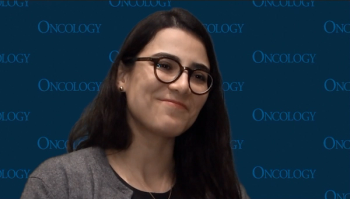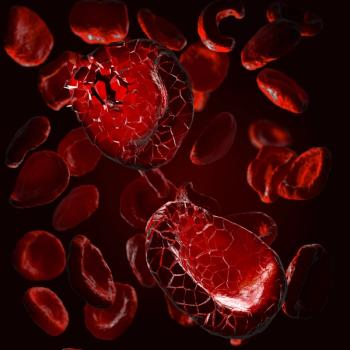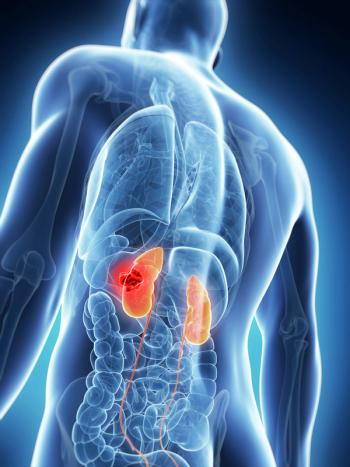
“We’ve seen with the initial anti-CTLA-4 ipilimumab experience that, as time went by, we were better at identifying and managing toxicities,” stated Omid Hamad, MD.

Your AI-Trained Oncology Knowledge Connection!


“We’ve seen with the initial anti-CTLA-4 ipilimumab experience that, as time went by, we were better at identifying and managing toxicities,” stated Omid Hamad, MD.

Tambiciclib plus zanubrutinib doubled the expected ORR of zanubrutinib monotherapy, eliciting an ORR of 67% in patients with relapsed or refractory DLBCL.

Earlier and more frequent talks about disabling ICDs with patients receiving end-of-life care and their families may help avoid excessive pain.

DOGE hopes to solve rampant inefficiencies in US healthcare that contribute to unsustainable costs and a broken system by cutting spending and administrative waste.

Large international meetings may facilitate conversations regarding disparities of care outside of high-income countries.

Understanding patient preferences for intensive end-of-life treatment may better inform research assessing patients with terminal cancer diagnoses.

A pooled analysis found pembrolizumab has a discontinuation rate of 12.7%, and a major key to handling it is maintaining good communication between the doctor and the patient.

Results from the phase 1/2a SeCuRE trial support the FDA decision for patients with metastatic castration-resistant prostate cancer.

Investigators will assess treatment with petosemtamab among patients with PD-L1–positive HNSCC in the phase 3 LiGeR-HN1 and LiGeR-HN2 trials.

Tips from experts on how to think about and manage adverse events in patients with diffuse large B-cell lymphoma.

“Even after doing 10,000 of these operations, we are tweaking [the hood technique]…to make things better,” according to Ash Tewari, MD, MBBS, MCh, FRCS.

Updated findings from the phase 3 EV-302 trial show enduring responses and survival improvements with enfortumab vedotin plus pembrolizumab.

Updated, comprehensive OS results with the combination in resectable NSCLC will be shared in a future peer-reviewed setting.

Efficacy results from cohort 1 of the phase 1b Beamion LUNG-1 trial support the decision to review zongertinib in HER2-mutant advanced NSCLC.

AI-powered tools may help alleviate doctor burnout and give clinicians more time to directly engage with patients.

Experts discuss epithelioid sarcoma diagnosis, management, and targeted therapies, and highlight 3 things everyone should know about treatment.

The FDA has accepted an NDA and set a PDUFA date of August 18, 2025, for the decision on dordaviprone in H3 K27M-mutant diffuse glioma.

Adverse physical functions were indicative of reduced survival and increased risk of ICANS in patients with non-Hodgkin lymphoma who were previously treated with CAR T-cell therapy.

An individualized vaccine as well as aerosolized medicines are 2 novel forms of treatment that are under development for managing brain tumors.

Data show improvements in overall survival and time to subsequent therapy initiation with darolutamide plus ADT/docetaxel.

Davide Rossi, MD, spoke about the impact of the MZL workshop and his hopes for the future of treatment and medicine in MZL.

Median PFS and OS were comparable between age groups when CAR T-cell therapy was given as treatment for patients with relapsed/refractory LBCL.

LITESPARK-004 and LITESPARK-005 trial results support the approval of belzutifan in patients with associated localized or advanced clear cell RCC.

The safety profile of ibrutinib/venetoclax in the phase 3 SYMPATICO trial was consistent with the known profiles for each individual agent.

Scarlett Lin Gomez, MPH, PhD, highlights facts from her research that are impacting cancer disparities and how she is finding ways to improve them.

Idecabtagene vicleucel led to high rates of MRD negativity in multiple myeloma who responded did not have complete responses to first-line therapy.

Frances Chow, MD, and Elizabeth Ren Zhang-Velten, MD, PhD, spoke about several facets of the current brain tumor landscape, including targeted therapies.

Olaparib plus abiraterone improved radiographic PFS and overall survival in mCRPC patients with germline or somatic BRCA mutations vs placebo plus abiraterone.

Efficacy results demonstrated by regorafenib and sintilimab in patients with mSS mCRC were dependent on patient characteristics such location of metastasis and RAS type.

A team from the University of Munich analyzed HRQOL outcomes in rural/urban patients with bladder cancer and after ADT treatment and postoperative radiotherapy in prostate cancer.